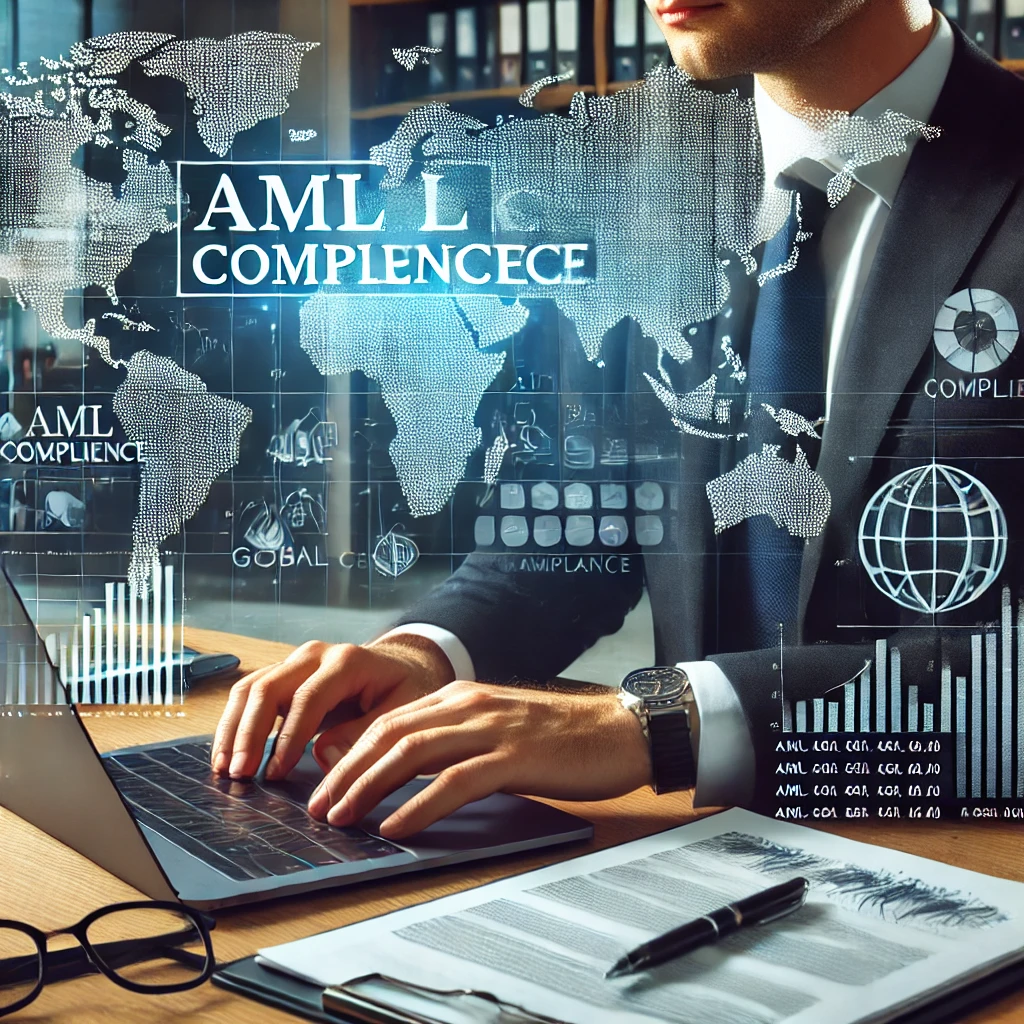
In today’s globalized economy, compliance with Anti-Money Laundering (AML) regulations is no longer optional—it is a critical component of safeguarding your business and its reputation. With money laundering schemes becoming increasingly sophisticated, businesses must adopt stringent measures to prevent, detect, and report suspicious activities.
Why AML Compliance Matters
- Legal Compliance: Non-compliance with AML regulations can result in significant legal repercussions, including hefty fines, imprisonment for responsible individuals, and potential revocation of business licenses. Demonstrating a commitment to AML not only protects your organization but also shows stakeholders and regulators your dedication to ethical business practices.
- Reputation Management: Trust is a cornerstone of any business. A single lapse in compliance can tarnish a company’s reputation, leading to loss of client trust, strained relationships with financial partners, and damage to your brand’s credibility. Proactive compliance demonstrates a commitment to ethical standards and builds long-term goodwill.
- Economic Stability: Money laundering undermines the integrity of financial systems and can destabilize economies. By implementing robust AML measures, businesses contribute to the broader fight against financial crimes, promoting economic stability and a fair competitive environment.
The Foundation of an Effective AML Compliance Program
An effective AML program is not a one-size-fits-all solution. It requires customization to meet the specific risks and regulatory requirements of your business. The key components include:
- Risk Assessment: Understanding where your business is most vulnerable to money laundering risks is the first step. This involves assessing customer profiles, transaction types, geographic regions, and delivery channels.
- Customer Due Diligence (CDD) and Enhanced Due Diligence (EDD): Verifying customer identities through Know Your Customer (KYC) protocols is fundamental. For high-risk customers or transactions, enhanced due diligence procedures ensure deeper scrutiny and reduce risk.
- Ongoing Monitoring: Implement continuous monitoring systems to flag unusual or suspicious activities. Modern technologies like artificial intelligence and machine learning can enhance the detection of potentially illicit patterns in real-time.
- Suspicious Activity Reporting (SAR): Develop clear processes for reporting suspicious activities to regulatory authorities promptly. Failing to report can lead to severe penalties and increase vulnerability to financial crimes.
- Employee Training and Awareness: Regular training programs ensure that employees stay informed about AML policies, emerging threats, and regulatory changes. Knowledgeable staff are better equipped to identify and mitigate risks.
Common Challenges in AML Compliance
Despite its importance, AML compliance comes with challenges that businesses must navigate effectively:
- Jurisdictional Variations: Regulations differ across countries, requiring global businesses to tailor their compliance efforts to meet local requirements while maintaining a unified framework.
- Balancing Compliance and Customer Experience: Stringent verification processes can sometimes create friction for customers. Striking a balance between thorough compliance and seamless customer experience is critical.
- Evolving Financial Crimes: Criminals continuously develop new schemes to circumvent detection. Businesses must stay ahead by adopting adaptive technologies and updating their strategies regularly.
The Role of Technology in AML Compliance
Modern technology has revolutionized the approach to AML compliance. Advanced tools such as:
- Artificial Intelligence (AI): AI-powered systems analyze vast datasets to identify anomalies and patterns indicative of money laundering.
- Blockchain: This technology enhances transparency and traceability in financial transactions, reducing the risk of illicit activities.
- Automated Screening Tools: These tools streamline customer onboarding by quickly identifying high-risk individuals or entities through database checks.
How Mavins International Can Help
At Mavins International, we understand the complexities of AML compliance and the challenges businesses face. Our team of experts offers tailored solutions that align with your organization’s specific needs. From designing risk-based frameworks to conducting training programs and implementing cutting-edge technologies, we ensure your business remains compliant while optimizing operational efficiency.
Protecting your business from financial crime is not just a regulatory requirement—it is a strategic investment in your future. Let us partner with you to build a resilient AML compliance program that secures your operations, protects your reputation, and strengthens stakeholder confidence.
#AMLCompliance #FinancialIntegrity #RiskManagement #GlobalBusiness #MavinsInsights #CorporateCompliance #ProtectYourReputation #AMLBestPractices #FinancialRegulation #TechnologyInCompliance
